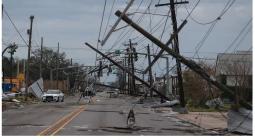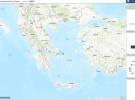Hope rises for Nigeria's power sector as global consortium moves to fix persistent outages
Nigeria’s persistent power outages may be a thing of the past following the entrance of a global consortium into the country's power market. The consortium is piloting a solar mini-grid program that would end the incessant power disruptions in the country.
The Global Energy Alliance for People and Planet (GEAPP), a New York-based consortium was created in 2021 by the Rockefeller Foundation, the Bezos Earth Fund along with the Ikea Foundation with the major aim of assisting countries to accelerate an equitable energy transition for people and planet.
According to The Financial Post, the facilities which will be operated by private developers, will supplement the low hours of power supply currently received by consumers from the national grid to keep their businesses and homes powered.
Nigeria's power sector crisis
Currently, Nigeria holds the record for the world's largest number of people without access to electricity which stands at about 86 million.
With just 4,000 megawatts supply from the nation’s power grid, the massive Nigerian population which stands at about 230 million get a meagre power supply which fails to reach all households at once. The power supply is a sixth of the amount generated in South Africa with a population of just about 64 million.
The national grid has in recent times, suffered its worst downtime by shutting down eight times this year alone.
The chief executive officer of the Transition Company of Nigeria (TCN), Sule Abdulaziz while speaking with Channels TV linked the incessant disruptions in Nigeria’s power sector to the use of obsolete equipment in the industry.
According to the TCN boss, the company should not be completely blamed for the power failures as the challenges in the sector range from generation, transmission and distribution.
“The transmission system needs a lot of investment and for so many years in this country that sector has been neglected, Most of the equipment we use is 50 years or 40 years,'' he said.
GEAPP's program for the power industry
With the entrance of GEAPP into Nigeria's power industry, power supply is expected to increase following the success of its projects in some locations.
In Ogun State, the one-megawatt solar mini-grid is expected to give the local community all-day electricity by the end of this year rather than the eight hours provided by electricity distributor - Ikeja Electric Plc.
GEAPP intends to build a pilot facility in each of the regions covered by Nigeria’s 11 power distribution companies and ultimately facilitate 10 gigawatts of mini-grids. The program hopes to link regions and communities with no access to power supply with mini-grids.
"We need hundreds or thousands of these kind of projects across Nigeria to end energy poverty, we have shown it’s a viable business model.”
"The World Bank, excited by the success of the program has pledged $130 million to develop similar facilities," Muhammad Wakil, country delivery lead for GEAPP told Bloomberg in an interview.
GEAPP executes the program via its Demand Aggregation for Renewable Technology (DART) program which combines the needs of several developers to cut the cost of solar equipment. It also operates a $25 million financing facility which allows developers borrow dollars to aid the importation of equipment, and then repay in Nigeria’s naira currency as revenue flow.
Cover photo: Nigeria's power sector gets backing from global consortium






